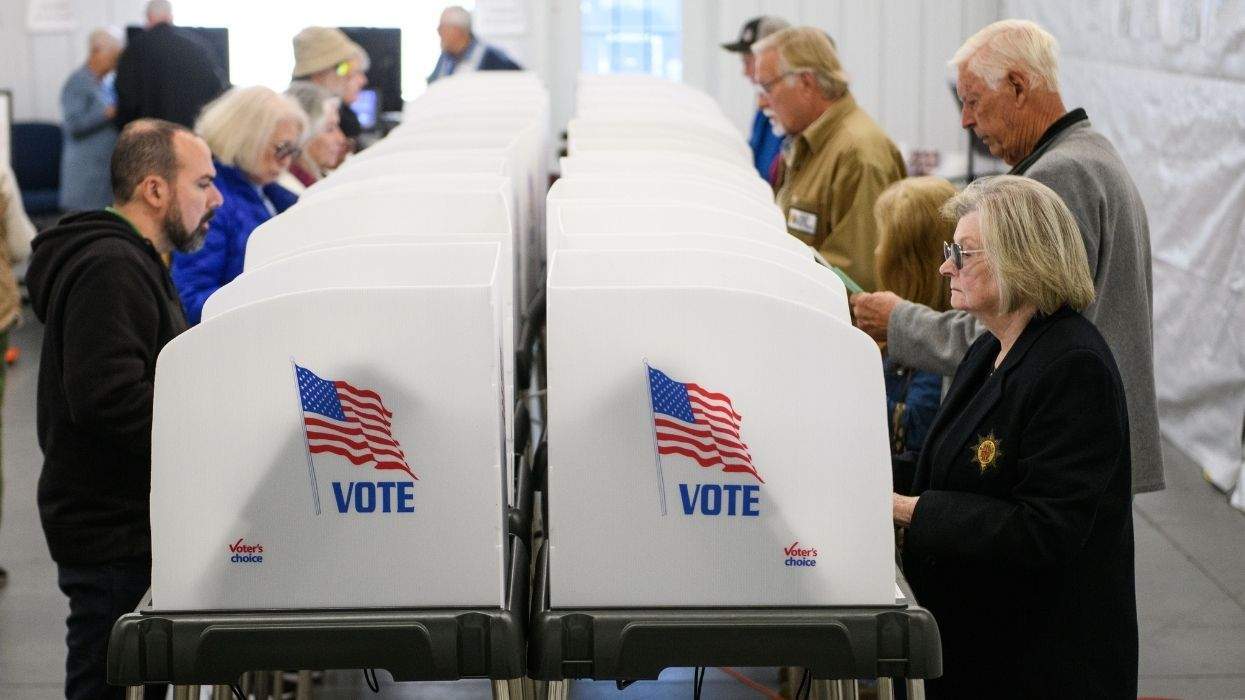Senate Democratic leadership and top military brass are at odds about the best way to proceed on the path toward ending "don't ask, don't tell," and LGBT advocates are siding with the military.
Sen. Carl Levin of Michigan, chairman of the Senate Armed Services Committee, said Tuesday that passing a moratorium on discharges under the policy was a "more realistic goal" than passing a full repeal measure.
But testimony from military leadership on both Tuesday and Wednesday demonstrated that the secretaries and service chiefs would prefer an all-or-nothing approach rather than an interim step like a moratorium.
"Keep it simple," said Gen. James Conway, head of the Marines, testifying before the House Armed Services Committee Wednesday. "I would encourage you to either change the law or not, but in the process, half measures would only be confusing in the end."
Conway endorsed the plan set forth by Secretary of Defense Robert Gates, who has appointed a working group to formulate how to implement "don't ask, don't tell" repeal over the next year. During testimony earlier this month, Gates said he supported President Barack Obama's decision to end the policy. "The question before us is not whether the military prepares to make this change, but how we best prepare for it," he said.
Conway's sentiments mirrored those of the Chief of Naval Operations Adm. Gary Roughead and Army Chief of Staff Gen. George Casey Jr. -- both of whom said the Pentagon review should be completed before there's an interruption of discharges.
Casey told the Senate Armed Services Committee Tuesday he would recommend against halting discharges while the implementation plan is finished.
"It would complicate the whole process that Secretary Gates set up," he said. "We would be put in the position of actually implementing it while we're studying the implementation."
Pro-repeal LGBT groups were quick to point out that the service chiefs
uniformly lined up behind the plan initiated by Gates and endorsed
by Adm. Mike Mullen, chairman of the Joint Chiefs of Staff.
"The leaders of our military service
branches told Congress that they back Adm. Mullen and Secretary Gates'
roadmap for repeal and would absolutely be capable of carrying out
orders abolishing 'don't ask, don't tell' when Congress and the
president send those orders their way," Human Rights Campaign President
Joe Solmonese said in a statement.
But many of the groups also
supported the all-or-nothing approach suggested by Conway -- a
well-known detractor of repealing the policy -- over a moratorium.
"We
also found ourselves agreeing with General Conway both that military
readiness must always be paramount and that this debate must be about
full legislative repeal of the 1993 ban, not about confusing interim
measures like a moratorium on discharges," said Aubrey Sarvis,
executive director of Servicemembers Legal Defense Network.
Alex
Nicholson, executive director of the gay veterans group Servicemembers
United, said he was surprised that Conway made such a "bold" statement,
but he was not surprised by the message.
"We've consistently
heard from military people that if you're going to do it, you do it all
the way or you don't do it," Nicholson said.
Sarvis and
Nicholson are both angling for a repeal measure to be included in this
year's defense authorization bill, which is currently under
consideration in both armed services committees. And if Nicholson has
his way, that repeal measure would jibe better with the objectives of
top military brass than a moratorium would.
The plan his group has floated
would lock in an end date for repeal but would also allow the military
to complete its review process before suspending discharges.
"They
don't want mixed signals where things are unclear or unpredictable --
that's just contrary to what military leaders and planners are
comfortable with," Nicholson said. "They want a clear mandate on what
to do and when to do it."
Sen. Joseph Lieberman is finalizing
the details of a full repeal bill he plans to introduce in the Senate
next week. It's not clear whether that legislation will incorporate
some of the concepts put forth by Nicholson and Servicemembers United,
or if it will hew more closely to the language in the House bill, which
allows only 90 days after passage for the Pentagon to generate new
guidelines for the policy.
General Conway, Admiral Roughead, and Navy
Secretary Raymond Mabus Jr. all testify before the Senate Armed
Services Committee Thursday.















